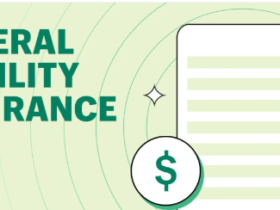Business Insurance Policy
Business Insurance Policy,In today’s fast-paced world, businesses of all sizes face potential risks, from property damage and liability claims to employee injuries and cyber threats. A comprehensive business insurance policy provides essential protection, ensuring that companies can handle unexpected incidents without suffering financial ruin. Whether you’re a small business owner or managing a larger enterprise, understanding the fundamentals of business insurance is crucial for long-term stability and success.
What is a Business Insurance Policy?
A business insurance policy is a contract between a company and an insurer designed to protect the business from specific risks. Policies can include various types of coverage to shield against property damage, legal liabilities, and employee-related risks, among others. By having the right insurance, businesses can minimize financial losses and focus on growth without fear of being completely derailed by unforeseen events.
Why Business Insurance is Essential
Operating without insurance can expose your business to significant risks. A single liability lawsuit or major property damage incident can cost thousands or even millions of dollars, potentially leading to bankruptcy. Here’s why a business insurance policy is a critical component for every company:
- Protection Against Liability
Businesses are vulnerable to various types of liability, from customer injuries on their premises to product-related claims. Liability insurance protects your business assets by covering legal expenses and compensation claims. - Compliance with the Law
Many states require businesses to have certain types of insurance, such as workers’ compensation and unemployment insurance. Operating without these policies can result in fines, penalties, or even legal action. - Safeguarding Business Assets
Property insurance protects buildings, equipment, and inventory, ensuring that your assets are covered in case of fire, theft, or natural disasters. This is essential for maintaining business continuity after an incident. - Employee Security
Providing employees with adequate insurance coverage, such as workers’ compensation, fosters a secure work environment and reduces turnover. Employees are also more likely to remain loyal when they feel protected and valued. - Enhanced Business Credibility
Having business insurance can enhance your company’s reputation and credibility. Clients and partners often prefer to work with insured businesses, as this demonstrates responsibility and risk management.
Types of Business Insurance Policies
Business insurance policies can be tailored to fit specific industries and needs. Here’s an overview of the most common types of business insurance:
- General Liability Insurance
This covers claims related to bodily injury, property damage, and advertising injury. It’s often the foundation of business insurance and provides essential protection for businesses of all sizes. - Commercial Property Insurance
Commercial property insurance protects physical assets, such as buildings, equipment, and inventory, against risks like fire, theft, and vandalism. This coverage is particularly important for businesses with physical assets and inventory. - Workers’ Compensation Insurance
Required in most states, workers’ compensation covers medical expenses, lost wages, and rehabilitation costs if an employee is injured on the job. It’s vital for employee welfare and compliance with labor laws. - Professional Liability Insurance
Also known as errors and omissions (E&O) insurance, this policy covers claims of negligence, mistakes, or failure to deliver services as promised. It’s especially crucial for businesses providing professional services, such as legal, consulting, and financial firms. - Business Interruption Insurance
Business interruption insurance covers lost income and operating expenses if a business must temporarily shut down due to a covered incident, such as a natural disaster or fire. This coverage helps ensure that a business can survive and recover financially from unforeseen events. - Cyber Liability Insurance
With cyber threats on the rise, cyber liability insurance covers the costs of data breaches, cyber-attacks, and other digital threats. This policy can cover costs associated with data recovery, legal fees, and even public relations efforts following a cyber incident. - Product Liability Insurance
For businesses that manufacture or sell products, product liability insurance provides protection against claims related to product defects or harm caused by products. - Commercial Auto Insurance
This policy covers vehicles used for business purposes, providing coverage for damages, injuries, and third-party liabilities in case of an accident. - Umbrella Insurance
Umbrella insurance offers an additional layer of protection, covering claims that exceed the limits of other policies. This is often used by businesses with higher liability risks to ensure full coverage in catastrophic situations. - Directors and Officers (D&O) Insurance
D&O insurance protects company executives and board members against claims related to their actions in running the company. This coverage can protect personal assets and help attract high-quality executives.
How to Choose the Right Business Insurance Policy
Selecting the right business insurance policy involves understanding your company’s specific needs and evaluating risks. Here are a few key steps to help you choose the right policy:
- Assess Your Business Risks
Identify potential risks that your business may face, considering factors such as industry, location, and size. For example, a construction company may prioritize liability and workers’ compensation, while a tech firm might focus more on cyber insurance. - Understand Legal Requirements
Research your state’s insurance requirements, as certain policies, like workers’ compensation, may be mandatory. Complying with these regulations is essential for avoiding legal issues and ensuring that employees are adequately protected. - Evaluate Policy Limits and Deductibles
Consider the coverage limits and deductibles for each policy. Policies with higher coverage limits offer more protection but often come with higher premiums. Selecting the right balance depends on your budget and risk tolerance. - Compare Multiple Quotes
Insurance rates can vary significantly between providers. Compare quotes from several insurers to find the best policy for your business. Online insurance marketplaces make it easy to compare multiple policies in one place. - Work with a Trusted Insurance Broker
Insurance brokers can provide expert advice and tailor policies to fit your business needs. Brokers often have access to multiple insurers and can help negotiate the best rates on your behalf. - Review and Update Policies Regularly
As your business grows, your insurance needs may change. Conduct annual policy reviews to ensure that your coverage aligns with current risks and that you’re not over- or under-insured.
Tips to Lower Business Insurance Premiums
Securing affordable business insurance is possible with a few proactive strategies:
- Implement Risk Management Practices
Reduce the likelihood of claims by implementing safety protocols and training employees on safe practices. Some insurers offer discounts for businesses with established safety programs. - Bundle Policies
Many insurers provide discounts if you purchase multiple policies from them, such as combining general liability and commercial property insurance. - Increase Deductibles
Higher deductibles often result in lower premiums. Make sure your business has enough financial reserves to cover the deductible in case of a claim. - Improve Workplace Security
Enhancing security, like installing surveillance systems, fire alarms, and cybersecurity measures, can reduce insurance costs and lower the risk of claims. - Maintain Good Credit
Insurers may check your business’s credit history, and maintaining good credit can lead to lower premiums. Paying bills on time and managing debt effectively can contribute to a positive credit profile. - Choose a Policy with Flexibility
Some insurance providers offer flexible policies that allow you to adjust coverage as needed. Flexible policies help ensure you’re not paying for unnecessary coverage.
Top Business Insurance Providers
Here are some leading business insurance providers known for their comprehensive policies, customer service, and competitive pricing:
- The Hartford
Known for tailored small business coverage, The Hartford offers various policies, from general liability to workers’ compensation and cyber insurance. - Travelers
Travelers is popular for its extensive range of business insurance policies and has specific programs for different industries. - Liberty Mutual
Liberty Mutual is known for customizable policies and a strong reputation for customer service, offering coverage options for businesses of all sizes. - Hiscox
Hiscox specializes in small business insurance, providing flexible policies with comprehensive coverage options for entrepreneurs and small companies. - Nationwide
With coverage options for businesses of all sizes, Nationwide is known for providing a variety of commercial policies, including general liability, property, and cyber insurance.
Conclusion: Protect Your Business with the Right Insurance Policy
A well-structured business insurance policy is essential for managing risks and protecting your company’s assets. Whether you operate a small business or a large enterprise, selecting the right coverage can make all the difference in safeguarding your financial health and ensuring continued growth.
From liability coverage to cyber insurance, each type of policy offers unique benefits, and understanding your business needs will help you build the right insurance portfolio. Invest time in researching policies, comparing providers, and consulting experts to create a comprehensive insurance strategy that offers peace of mind and stability for years to come.










Leave a Reply
View Comments